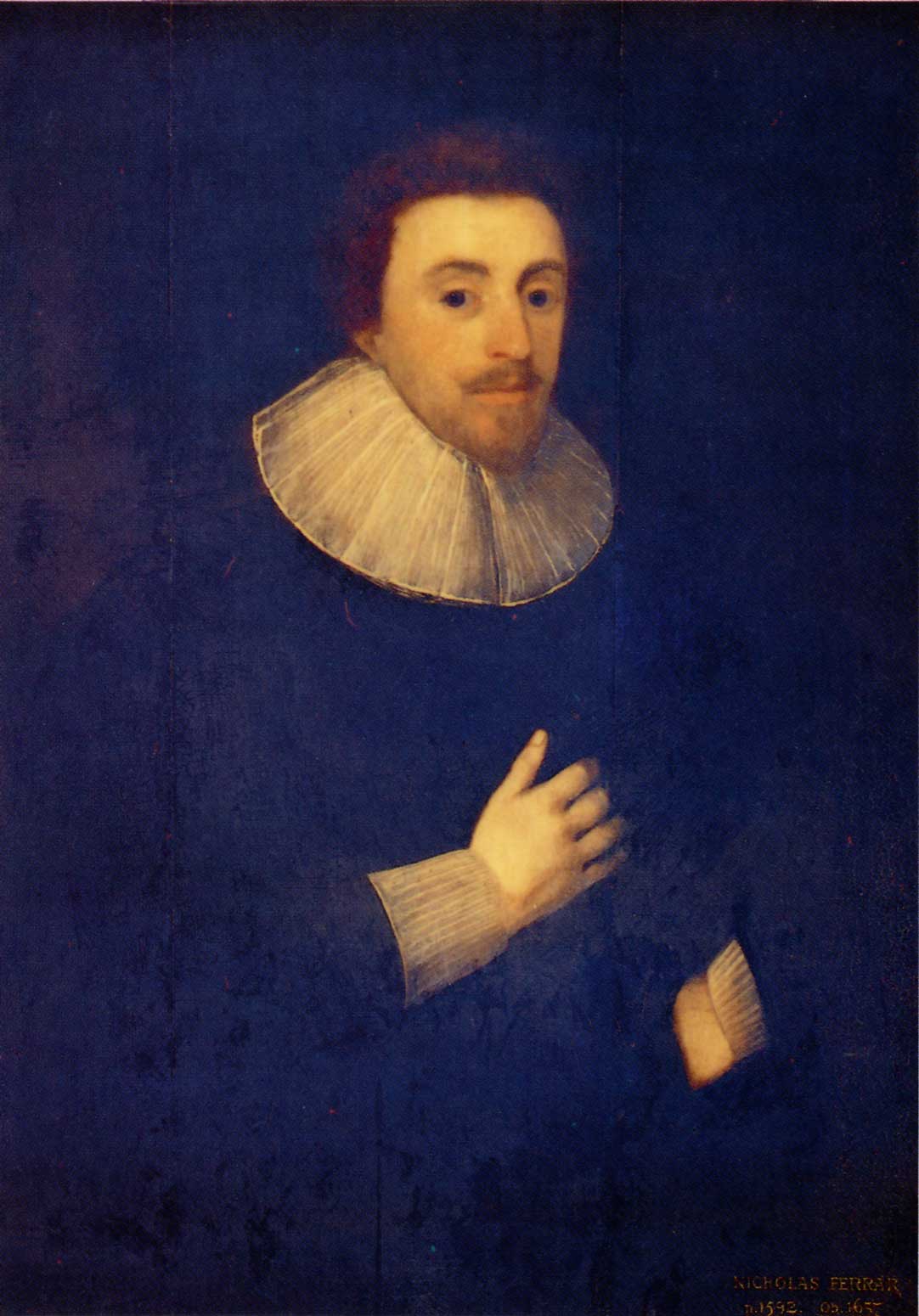Nicholas Ferrar
December 1st is the Feast Day of Nicholas Ferrar in the Episcopal Church. (It's December 4th in the Church of England.) I have never been quite certain why he is on the American calendar of Saints. He lived in the early 1600s in Cambridgeshire, England, and was an ordained deacon. He and his family retired early in life to a quiet and largely abandoned corner of Huntingdonshire to a hamlet called Little Gidding.
Ferrar and his family largely created a community of prayer. The manor and little church attached to the manor became an outpost of continual prayer following the designs of the Book of Common Prayer. As the story goes, someone from the family was always in the chapel at prayer, day or night. They took literally the Biblical call to pray without ceasing.
This, of course, was the days between Henry VIII's dissolution of the monasteries in England and the revival of any form of monasticism or religious orders in England that really didn't arise again until the 1800s. Because they did appear to be somewhat monastic in tone even though Ferrar himself was adamant that they were not, the Puritans assailed the little community vigorously.
About ten years after Ferrar died, Cromwell's army, under the direction of the Puritans, forcibly broke up the community as a "vestige of popery." Why the Puritans were so threatened by a family at prayer in a small corner of Cambridgeshire is somewhat baffling. Ferrar was largely innocuous and wrote treatises on various Christian virtues and faith. His family also was a pioneer in publishing some beautiful Gospel harmonies that still exist to this day in England. Despite the Calvinists best efforts at intimidation and forced closure, Ferrar's experiment in prayer did lead to the foundation for a revival in monasticism and religious communities within the Church of England some centuries later.
The chapel at Little Gidding is still in operation on occasion. You can explore it online here and here. There is also a guild you can join that is centered on prayer.
To ponder the meaning of community life and prayer, TS Eliot wrote a poem in which he paid homage to Ferrar's project:
Ferrar and his family largely created a community of prayer. The manor and little church attached to the manor became an outpost of continual prayer following the designs of the Book of Common Prayer. As the story goes, someone from the family was always in the chapel at prayer, day or night. They took literally the Biblical call to pray without ceasing.
This, of course, was the days between Henry VIII's dissolution of the monasteries in England and the revival of any form of monasticism or religious orders in England that really didn't arise again until the 1800s. Because they did appear to be somewhat monastic in tone even though Ferrar himself was adamant that they were not, the Puritans assailed the little community vigorously.
About ten years after Ferrar died, Cromwell's army, under the direction of the Puritans, forcibly broke up the community as a "vestige of popery." Why the Puritans were so threatened by a family at prayer in a small corner of Cambridgeshire is somewhat baffling. Ferrar was largely innocuous and wrote treatises on various Christian virtues and faith. His family also was a pioneer in publishing some beautiful Gospel harmonies that still exist to this day in England. Despite the Calvinists best efforts at intimidation and forced closure, Ferrar's experiment in prayer did lead to the foundation for a revival in monasticism and religious communities within the Church of England some centuries later.
The chapel at Little Gidding is still in operation on occasion. You can explore it online here and here. There is also a guild you can join that is centered on prayer.
To ponder the meaning of community life and prayer, TS Eliot wrote a poem in which he paid homage to Ferrar's project:
from Little Gidding by T.S. Eliot:
If you came this way,
Taking any route, starting from anywhere,
At any time or at any season,
It would always be the same: you would have to put off
Sense and notion. You are not here to verify,
Instruct yourself, or inform curiosity
Or carry report. You are here to kneel
Where prayer has been valid. And prayer is more
Than an order of words, the conscious occupation
Of the praying mind, or the sound of the voice praying.
And what the dead had no speech for, when living,
They can tell you, being dead: the communication
Of the dead is tongued with fire
beyond the language of the living.
Here, the intersection of the timeless moment
Is England and nowhere. Never and always.
Taking any route, starting from anywhere,
At any time or at any season,
It would always be the same: you would have to put off
Sense and notion. You are not here to verify,
Instruct yourself, or inform curiosity
Or carry report. You are here to kneel
Where prayer has been valid. And prayer is more
Than an order of words, the conscious occupation
Of the praying mind, or the sound of the voice praying.
And what the dead had no speech for, when living,
They can tell you, being dead: the communication
Of the dead is tongued with fire
beyond the language of the living.
Here, the intersection of the timeless moment
Is England and nowhere. Never and always.

Comments